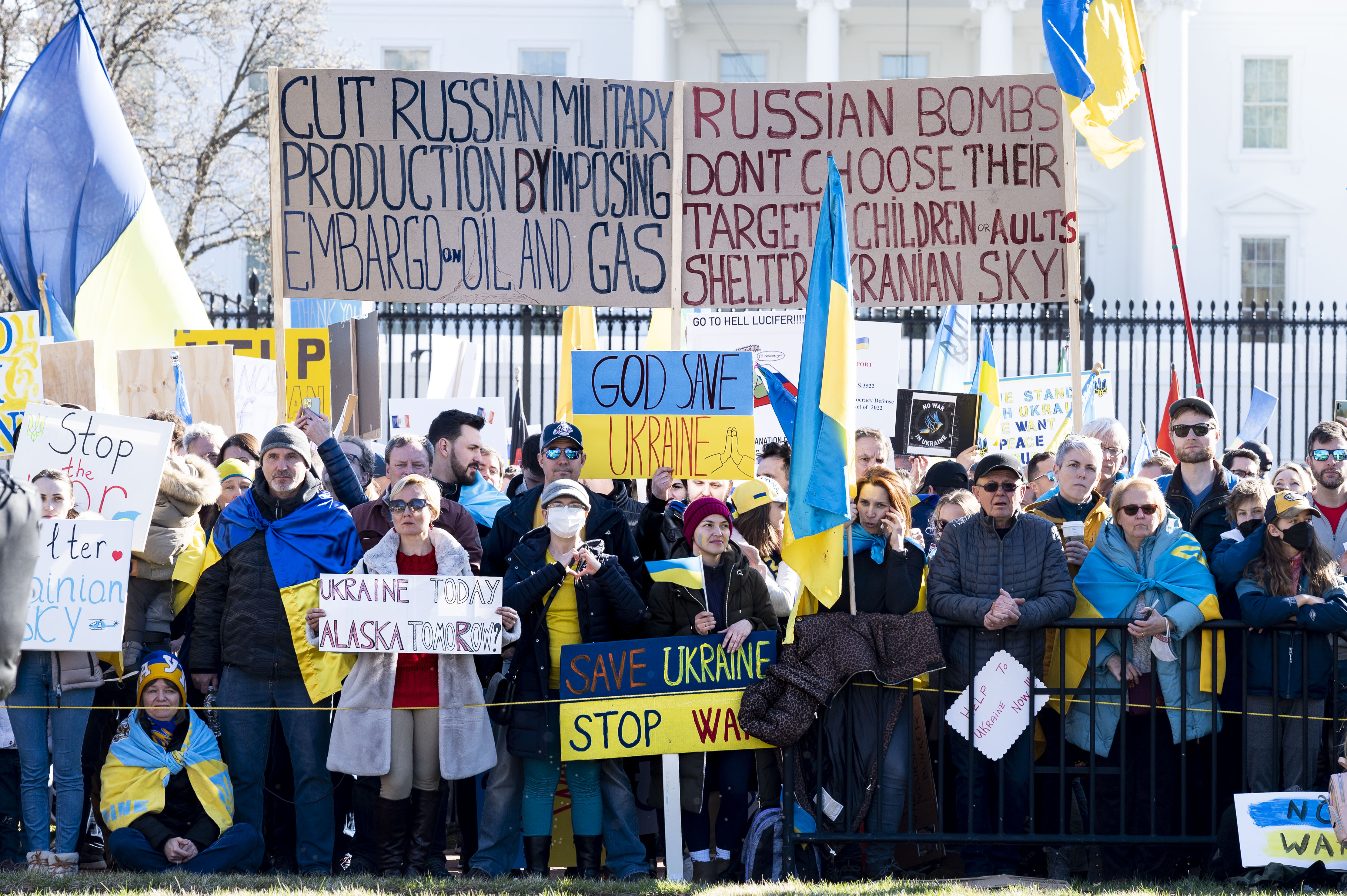The Global Oil Market and the Invasion of Ukraine
Russia’s invasion of Ukraine has had the knock-on effect of a sudden increase in oil prices on the world market and OPEC+ countries have not yet been willing to respond to increase supplies. In an effort to limit Russia’s budget revenues from the oil trade, Canada, the U.S. and, the United Kingdom have embargoed Russian crude. While the EU has not joined them, the effects of the rapid changes in the oil market, European consumers will see sharp increases in the prices of goods and services with the European economy potentially slipping into stagflation.
 Michael Brochstein/Zuma Press/Forum
Michael Brochstein/Zuma Press/Forum
What is the impact on the oil market of the Russian attack on Ukraine?
Russia is the third-largest oil producer after the U.S. and Saudi Arabia and the world’s largest oil exporter. With such a large share of the global market, political uncertainty in the first days after the Russian invasion of Ukraine resulted in an immediate increase in oil prices by around 15%, to $110 per barrel of Brent crude oil (the benchmark oil from the North Sea). To mitigate the jump in prices, member countries of the International Energy Agency (IEA) decided to release 61.7 million barrels from their strategic reserves—half of which is to come from the US—which accounts for 3% of total stocks. Market participants also began to look for alternatives to Russian Urals crude on European and Middle East markets. In response, Russia offered discounts of $15-20 per Urals barrel, finding buyers for most of its production, including Shell.
What is the position of the OPEC+ countries?
Even before the invasion, oil-producing countries associated through the OPEC+ format (Russia is a member) were missing their production targets, which pushed up global oil prices. They have refused to respond to the IEA’s request to increase the supply. During a virtual summit on 2 March, OPEC+ countries stated their view that price fluctuations in the market were not fundamental in nature but reflected only “current geopolitical events”, and therefore they would not change the scheme of a gradual increase in oil production planned for March (by 0.4 million barrels of crude oil per day). Saudi Arabia, the de facto leader of OPEC+, has the ability to significantly increase production (as does Iran and the United Arab Emirates). Probably, it is delaying the move for political reasons, putting the hard-won agreement with Russia above relations with the U.S. and Ukraine, as well as the obvious financial benefit of high prices. The next OPEC+ summit is scheduled for the end of March.
What is the significance of the embargo on Russian oil by Canada, the U.S., and the UK?
Although Canada announced its embargo on Russian oil already on 28 February, the market reacted violently only to word of a potential joint U.S./EU strike on the Russian economy, announced by the U.S. Secretary of State Antony Blinken on 6 March. The price of Brent crude peaked briefly at nearly $140 a barrel. The decision in the end, announced by U.S. President Joe Biden on 8 March, that the U.S. will end contracts for the supply of oil, gas, and coal from Russia within 45 days, as well as the simultaneous announcement by the UK that it would end oil imports from Russia by the end of 2022, were met with a calmer market reaction. These declarations are, to a large extent, symbolic gestures (Russian oil accounts for only around 8% of U.S. and UK oil imports and much less for Canada), although not without long-term economic consequences. It can be expected that further sanctions imposed on Russia and speculation on the oil market will lead to further price increases—analysts forecast $150-180 per barrel by the end of the year; the Russians suggest prices might reach $300 per barrel—and this will slow down economic growth. Russia is also announcing trade retaliation measures.
Why has the EU not imposed an embargo on Russian oil?
The European supporters of the embargo on Russian oil, which includes the Lithuanian government, point to the need to cut off Russian oil sales revenues. However, enacting the ban requires the consent of all EU members. It is all the more unlikely since about 30% of EU imports of oil supplies are from Russia, with some members’ exceeding 50% of their imports. Poland, receives around 85% of its imported oil from Russia, prioritises an embargo on coal and sees a reduction of oil and gas purchases at a later stage. The greatest opposition to the oil embargo is expressed by Germany, which covers 35% of its import needs with Russian oil, and by Hungary, which obtains as much as 90% of its oil and gas from Russia. Opponents of the embargo argue that the EU’s strategic oil reserves insufficient to buy enough time to find alternative gas suppliers, and that the consequences of such an embargo—including a sharp rise in the prices of goods and services—will hit the European economy too hard. Even if the sanctions and embargoes imposed on Russia do not directly affect its oil exports, the increase in the prices of this commodity on the global market resulting from the decisions by the U.S. and the UK and the shortages and uncertainty caused by the war in Ukraine will translate into a weaker EU economy, increasing the risk of stagflation. If Russia suspends or restricts energy supplies to the EU, it would have a similar effect.


